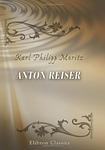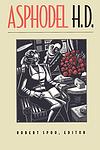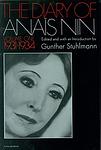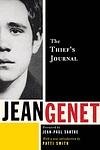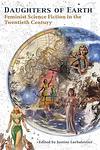The Greatest "Autobiography, Fiction" Books of All Time
Click to learn how this list is calculated.
This list represents a comprehensive and trusted collection of the greatest books. Developed through a specialized algorithm, it brings together 300 'best of' book lists to form a definitive guide to the world's most acclaimed books. For those interested in how these books are chosen, additional details can be found on the rankings page.
Genres
Autobiography is a literary genre that focuses on the life story of the author. It is a first-person account of the author's experiences, thoughts, and emotions, often including significant events and milestones that have shaped their life. Autobiographies can be written by anyone, from famous public figures to ordinary people, and can cover a wide range of topics, including personal growth, career achievements, struggles, and relationships. This genre provides readers with a unique insight into the author's life and perspective, making it a popular and engaging category of books.
Countries
Date Range
Reading Statistics
Click the button below to see how many of these books you've read!
Download
If you're interested in downloading this list as a CSV file for use in a spreadsheet application, you can easily do so by clicking the button below. Please note that to ensure a manageable file size and faster download, the CSV will include details for only the first 500 books.
Download-
1. Cider with Rosie by Laurie Lee
"Cider with Rosie" is a memoir that captures the experiences of a young boy growing up in a small Cotswold village in England during the early 20th century. The narrative vividly portrays the simplicity and beauty of rural life, while also exploring the complexities of adolescence and first love. It is a nostalgic and evocative account of a bygone era, filled with memorable characters and richly detailed descriptions of the natural world.
-
2. Nadja by André Breton
The novel is a surrealistic exploration of the narrator's relationship with a young woman named Nadja. As the narrator becomes infatuated with Nadja, their encounters become more and more dreamlike. The book delves into the nature of reality and the power of the subconscious mind, blurring the lines between dreams and reality. It is also a commentary on the socio-political climate of Paris in the early 20th century, showcasing the author's views on art, life, and love.
-
3. The Periodic Table by Primo Levi
"The Periodic Table" is a collection of short stories that use elements of the periodic table as metaphors to explore the author's experiences as a Jewish-Italian chemist before, during, and after World War II. Each chapter is named after a chemical element, reflecting its significant role in the story. The work provides deep insights into the human condition and the power of science, while also serving as a poignant memoir of survival during the Holocaust.
-
4. Advertisements for Myself by Norman Mailer
This book is a collection of short stories, essays, interviews, and previously unpublished works by a renowned author. It is a self-reflective exploration of his life, work, and philosophy. The author boldly critiques his own work, discusses his political and social views, and provides insight into his personal life. The book, controversial and provocative, serves as a fascinating study of the author's self-perception and creative process.
-
5. Cartucho And My Mother's Hands by Nellie Campobello
"Cartucho And My Mother's Hands" is a poignant collection of vignettes that offer a child's perspective on the Mexican Revolution. Through a series of short, vivid sketches, the narrative captures the brutality and humanity of the conflict as witnessed by the young protagonist. The work is both a personal memoir and a tribute to the resilience of women, particularly the author's mother, whose strength and tenderness are symbolized by her hands. The book blends the innocence of childhood with the harsh realities of war, providing a unique and emotionally resonant account of historical events that shaped Mexico's national identity.
-
6. W, or the Memory of Childhood by Georges Perec
"W, or the Memory of Childhood" is a unique blend of autobiographical recollections and fictional narrative. The novel alternates between two storylines: one describing the childhood of a Jewish boy during World War II, and the other detailing a dystopian society on a mysterious island known as "W". The book explores themes of memory, trauma, and the loss of innocence, while also offering a critique of totalitarian regimes. The two narratives gradually converge, revealing the traumatic underpinnings of the protagonist's life and the allegorical nature of "W".
-
7. What Is the What by Dave Eggers
The novel is a fictionalized account of a real-life Sudanese refugee, Valentino Achak Deng, who was forced to flee from his village during the Second Sudanese Civil War. The story follows his harrowing journey as a child through Ethiopia and Kenya, his life in various refugee camps, and his eventual resettlement in the United States. The book explores themes of survival, identity, and the power of storytelling, while shedding light on the tragic history and ongoing humanitarian crisis in Sudan.
-
8. The Enormous Room by E. E. Cummings
"The Enormous Room" is a semi-autobiographical novel about the author's time spent in a French prison during World War I. The protagonist is arrested and detained for his anti-war sentiments, and the story explores his experiences and observations within the prison. The novel is known for its unique and experimental use of language and its vivid, often surreal depictions of life in confinement.
-
9. The Berlin Stories by Christopher Isherwood
"The Berlin Stories" is a collection of two novels that present a semi-autobiographical account of the author's time in 1930s Berlin during the rise of the Nazi Party. It vividly portrays the city's underground scene, capturing the lives of a variety of characters from different social classes and backgrounds. The narrative provides a stark and poignant exploration of the human condition against the backdrop of political upheaval and societal change, offering a unique perspective on a critical period in history.
-
10. Anton Reiser by Karl Philipp Moritz
"Anton Reiser" is a semi-autobiographical novel that explores the life of a young man growing up in a strict, religious family in Germany during the 18th century. The protagonist struggles with his religious upbringing and societal expectations, while trying to pursue his passion for literature and philosophy. The novel delves into the protagonist's psychological struggles, his quest for self-identity, and his attempts to reconcile his personal desires with the demands of his environment.
-
11. Asphodel by Hilda Doolittle
"Asphodel" is a semi-autobiographical novel that explores the complexities of a love triangle involving the protagonist, her husband, and another woman. Set during the First World War, the story is a vivid portrayal of the protagonist's emotional struggles as she navigates her relationships and her own identity, while also dealing with the societal and political pressures of the time. The novel is known for its rich, poetic language and its exploration of themes such as love, betrayal, identity, and war.
-
12. Patterns of Childhood by Christa Wolf
"Patterns of Childhood" is a semi-autobiographical novel that explores a woman's struggle to reconcile her past as a member of the Hitler Youth in Nazi Germany with her present as a writer in East Germany. The protagonist uses her memories, dreams, and conversations with her brother to confront her guilt and shame over her involvement in the Nazi regime. The narrative shifts between past and present, creating a complex and layered exploration of guilt, memory, and the process of coming to terms with a traumatic past.
-
13. Flowering Nettle by Harry Martinson
"Flowering Nettle" is a semi-autobiographical novel that follows the journey of a young boy who, after losing his parents, is sent to a rural village in Sweden to live with his aunt. The story details his experiences and struggles growing up in poverty, while also exploring his love for nature and the natural world. Despite his hardships, the protagonist manages to find beauty and solace in the world around him, ultimately expressing a profound sense of resilience and hope.
-
14. René by François-Auguste-René de Chateaubriand
"René" is a seminal work of French Romantic literature that delves into the emotional turmoil and philosophical reflections of its eponymous protagonist, a young, disenchanted aristocrat. The novella explores themes of nature, solitude, and existential despair as René grapples with a profound sense of melancholy and a feeling of being out of step with society. His internal struggles and search for meaning lead him to the American wilderness, where encounters with indigenous peoples and the untamed landscape prompt deeper introspection. The narrative is a poignant examination of the individual's quest for authenticity and the pervasive sense of alienation that can accompany a sensitive and introspective soul in a world that seems indifferent to its deeper yearnings.
-
15. The Diary of Anais Nin, 1931-1934 by Anaïs Nin
This book is a deeply personal journal of a woman's life from 1931 to 1934, providing an intimate look into her experiences, thoughts, and emotions during this period. The author explores her relationships, her struggles with her writing, and her journey of self-discovery. The diary also captures her interactions with notable personalities of the time, giving readers a unique glimpse into the cultural and social milieu of the early 20th century. Her introspective and poetic style adds a layer of depth to her observations and reflections.
-
16. The Way of a Pilgrim by Anonymous
"The Way of a Pilgrim" is a 19th-century Russian Christian text that follows an anonymous protagonist on a spiritual journey across the country. The protagonist is a wanderer who seeks to understand the teachings of the Bible and the nature of ceaseless prayer. Through his travels and encounters with various people, he explores the concept of the Jesus Prayer and the philosophy of the Eastern Orthodox Church. The book is a profound exploration of faith, spirituality, and the quest for divine connection.
-
17. The Thief's Journal by Jean Genet
The book is a fictionalized account of the author's experiences in the criminal underworld of early 20th-century Europe. It is a narrative that delves into the life of a man who embraces his identity as a thief and a homosexual, exploring the intersections of crime, sexuality, and social defiance. The protagonist navigates through various relationships with fellow outcasts and criminals, while also confronting the moral codes of society. The work is known for its poetic and introspective prose, as well as its exploration of themes such as betrayal, freedom, and the search for beauty within the margins of society.
-
18. Wittgenstein's Nephew by Thomas Bernhard
"Wittgenstein's Nephew" is a semi-autobiographical novel that explores the friendship between the narrator and his friend Paul, who is the nephew of the famous philosopher Ludwig Wittgenstein. The story takes place in Vienna and is set against the backdrop of the Austrian mental health system. The novel delves into themes of sanity, insanity, and the fine line that separates the two, while also offering a critique of Austrian society. It is a meditation on the nature of illness, both physical and mental, and the impact it has on personal relationships and one's perception of the world.
-
19. A Sorrow Beyond Dreams by Peter Handke
This book is a poignant exploration of the author's mother's life and her struggle with depression, ultimately leading to her suicide. It provides a deeply personal and raw account of the author's attempts to understand his mother's despair and the societal constraints that contributed to it. The narrative is a profound reflection on memory, loss, and the complexity of human emotions, offering a stark and moving portrayal of a woman's life in a rigid, post-war society.
-
20. Living Up The Street by Gary Soto
"Living Up The Street" is a collection of autobiographical essays that explore the experiences of a Mexican-American boy growing up in the barrios of Fresno, California. The book delves into the realities of working-class life, highlighting themes of poverty, violence, and the struggle for identity. The protagonist's journey through adolescence is marked by a series of humorous, tragic, and poignant moments, offering a vivid depiction of life in a Hispanic community in America.
-
21. The Enigma of Arrival by V. S. Naipaul
The novel is a semi-autobiographical work that explores the life of an unnamed protagonist who migrates from the Caribbean to rural England. As he grapples with feelings of alienation and displacement, he undergoes a profound personal transformation. He observes the slow decay of the English countryside and the changing lives of those around him, which mirror his own internal changes. The narrative is a complex exploration of themes such as identity, belonging, and the passage of time.
-
22. My Father's Glory by Marcel Pagnol
The book is a nostalgic memoir that paints a vivid portrait of early 20th-century life in the French countryside, as seen through the eyes of a young boy. It recounts the author's idyllic childhood summers spent in the hills of Provence, where he develops a deep bond with his father, a schoolteacher. The narrative is filled with warmth and humor, as it explores themes of family, nature, and the simple joys of rural life. The boy's adventures and the colorful characters he encounters in the Provençal landscape are lovingly described, evoking a sense of wonder and affection for a bygone era.
-
23. Cosima by Grazia Deledda
The novel unfolds the life of Cosima, a semi-autobiographical character, as she navigates the complexities of her existence in a small Sardinian village. Through her eyes, readers experience the rich tapestry of rural Italian life at the turn of the 20th century, marked by strong family bonds, social expectations, and the struggle for personal independence. As Cosima grows from a curious child into a thoughtful adult, she grapples with her aspirations, the constraints placed upon her by society, and her deep connection to her homeland, all while drawing inspiration from the natural beauty and cultural traditions that surround her. The narrative is a poignant exploration of identity, the pursuit of one's passions against the odds, and the enduring influence of one's roots.
-
24. Cleaned Out by Annie Ernaux
"Cleaned Out" is a poignant autobiographical novel that delves into the life of a young woman coming of age in post-war France. The narrative follows her journey from a working-class background through her experiences at a boarding school and university, where she grapples with the social and sexual mores of the time. The protagonist's struggle with an unwanted pregnancy and the subsequent illegal abortion is a central and harrowing theme, reflecting the broader issues of female autonomy and the class divide. The novel is a stark and unflinching exploration of identity, memory, and the societal pressures that shape the lives of women.
-
25. Daughter Of Earth by Agnes Smedley
The book is a semi-autobiographical novel that follows the life of Marie Rogers, a woman born to a poor, rural American family at the turn of the 20th century. It explores her struggles with poverty, gender inequality, and political awakening as she moves from the American Midwest to the West Coast and eventually to international locations. The protagonist's journey is marked by her involvement in the labor and feminist movements, her complex relationships with men, and her unyielding quest for personal and social liberation. The narrative delves into themes of class struggle, identity, and the intersection of personal and political realities, offering a raw and poignant look at the challenges faced by women and the working class in the early 1900s.
Reading Statistics
Click the button below to see how many of these books you've read!
Download
If you're interested in downloading this list as a CSV file for use in a spreadsheet application, you can easily do so by clicking the button below. Please note that to ensure a manageable file size and faster download, the CSV will include details for only the first 500 books.
Download








